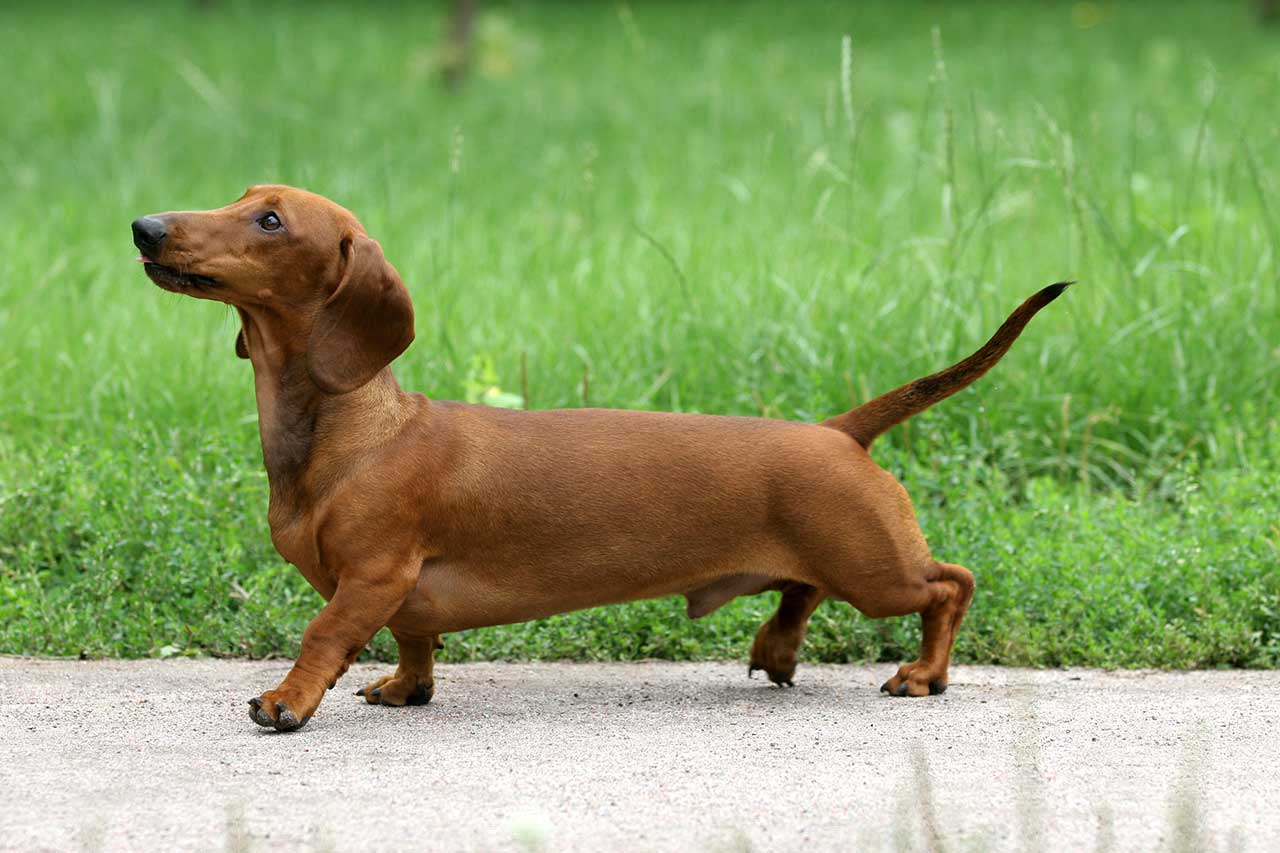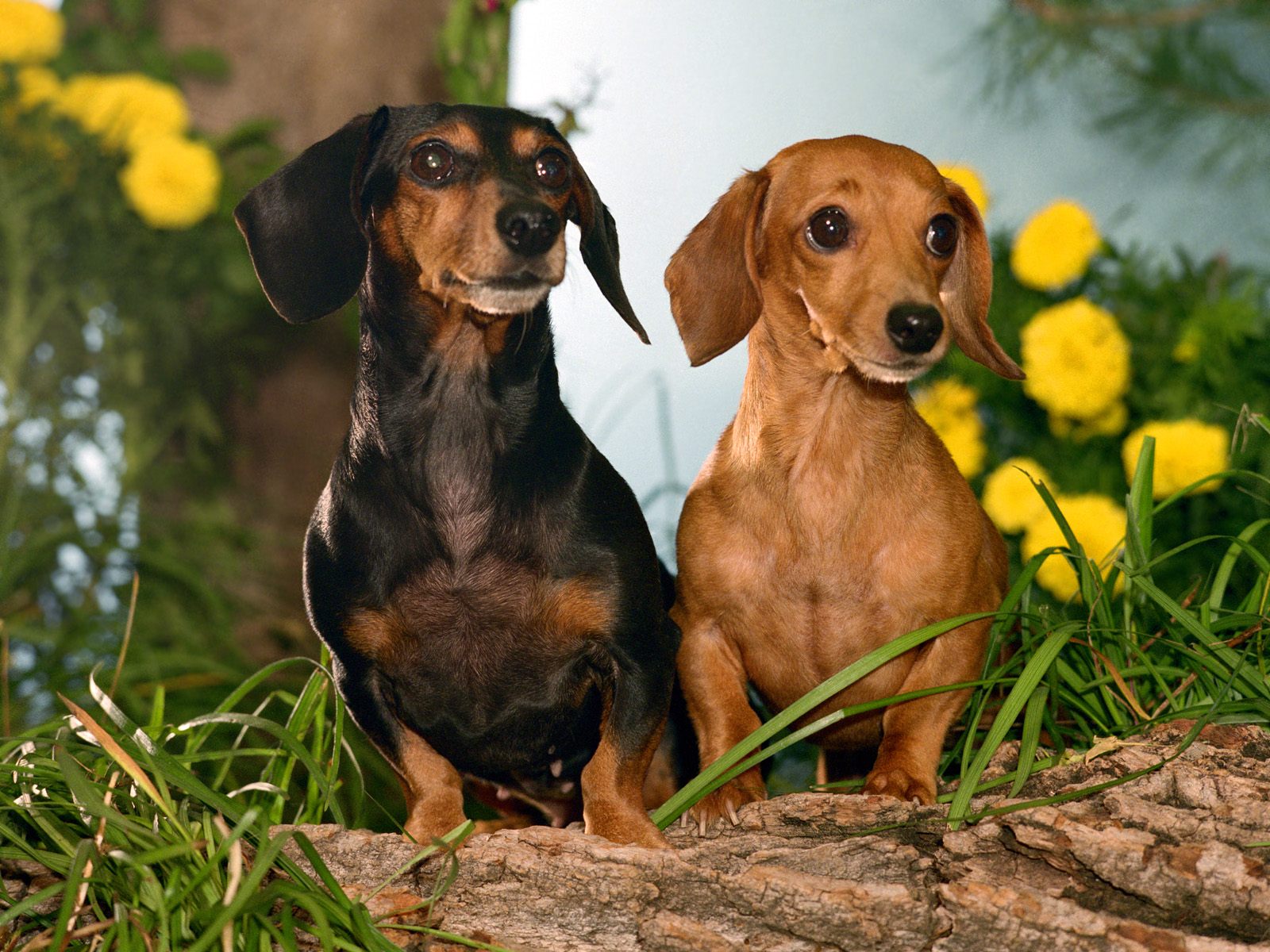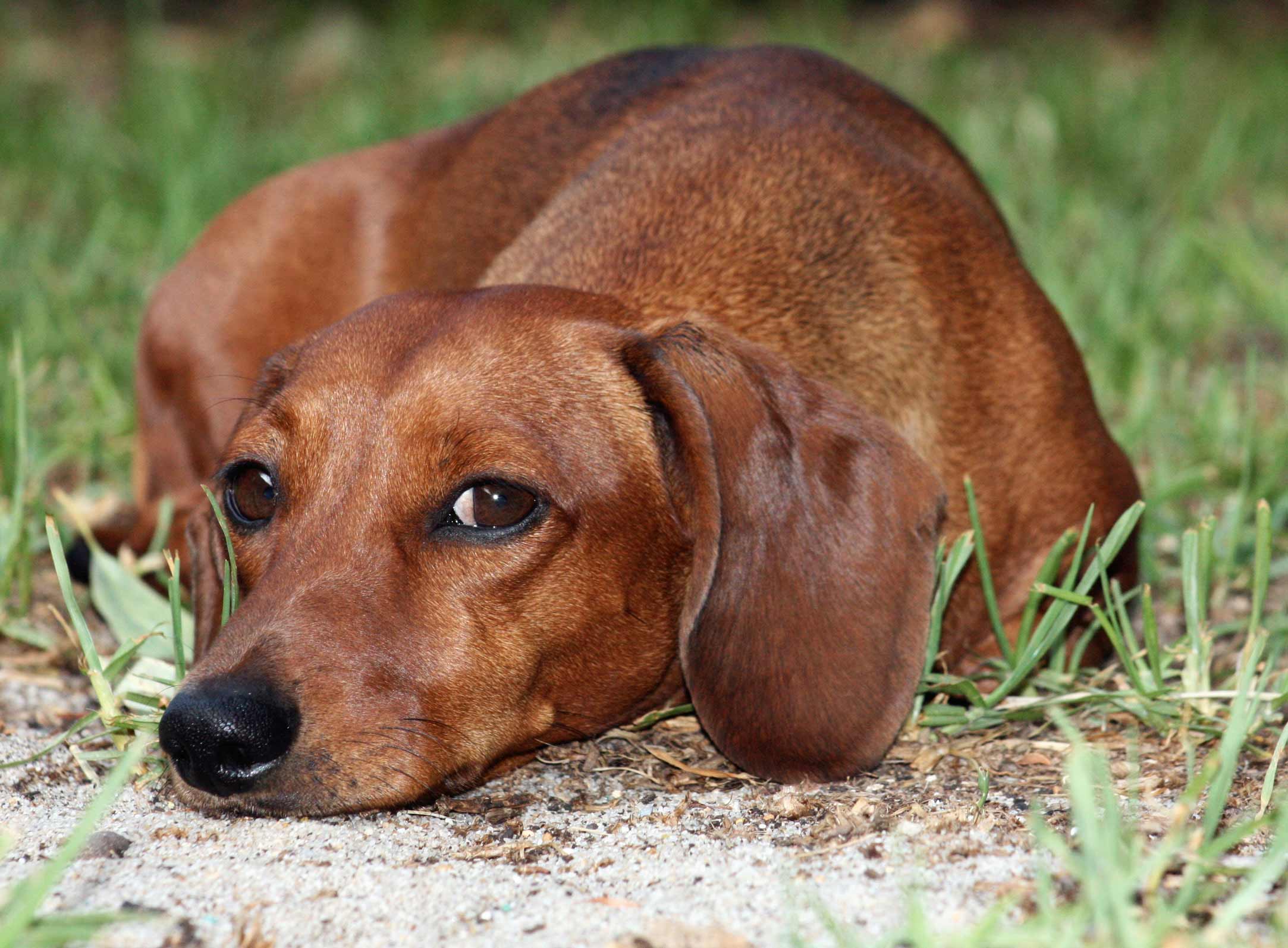
The Dachshund, whose name means “badger dog” in German, originated in Germany over 600 years ago. This short-legged hound was specifically developed to hunt badgers, rabbits, and other burrow-dwelling animals, with its long body, strong front paws, and courageous spirit making it ideal for underground work.
By the 19th century, the breed had become popular with European royalty, particularly in England and Germany. It was officially standardized in the late 1800s, and both miniature and standard sizes were developed for hunting different types of game. The American Kennel Club (AKC) recognized the Dachshund in 1885, and it has remained one of the most beloved companion dogs ever since.
Today, the Dachshund is one of the most popular small breeds worldwide, loved for its adorable looks, big-dog attitude, and playful energy. Whether in standard or miniature form, the breed has a massive fan base among families, seniors, and city dwellers alike.
Dachshunds are instantly recognizable by their long backs, short legs, and expressive faces.
• Coat Types:
o Smooth: Short, shiny, and low maintenance.
o Longhaired: Soft, flowing coat with feathering on ears and legs.
o Wirehaired: Coarse, dense coat with a beard and bushy eyebrows.
• Sizes:
o Standard: 16–32 lbs (7–15 kg)
o Miniature: Up to 11 lbs (5 kg)
• Color Varieties:
o Red, black and tan, chocolate, cream, dapple, piebald, brindle, and more.
• Body: Long, low-slung, and muscular.
• Head: Slightly arched skull, long muzzle, dark almond-shaped eyes.
• Ears: Long and droopy, framing the face.
• Tail: Moderately long and tapers to a point.
Despite their size, Dachshunds are fearless, smart, and strong-willed, often described as a big dog in a little body.
• Brave and Tenacious: Retain their hunting instincts—may dig, bark, or chase.
• Loyal and Affectionate: Deeply bond with their family and often become attached to one person.
• Curious and Clever: Always investigating, sniffing, or exploring.
• Stubborn but Smart: Can be independent and selective in training—patience is key.
• Alert and Vocal: Natural watchdogs who will bark at anything unusual.

If you’re looking for a compact dog with tons of personality, the Dachshund is a perfect match.
• Fun and Lively: Always up for play and affection.
• Good Apartment Dog: Small size and moderate exercise needs suit urban living.
• Loyal Companion: Form strong, lasting bonds.
• Unique Look: Few breeds are as instantly recognizable.
• Entertaining Personality: Quirky, brave, and a little bit dramatic.
Dachshunds are easy to care for but require special attention due to their long backs and bold temperament.
• Training:
o Use positive reinforcement and consistency.
o House training can take time—patience is key.
• Exercise:
o Needs daily walks and moderate play, but avoid excessive jumping to protect the spine.
• Grooming:
o Smooth: Brush weekly.
o Longhaired: Brush several times a week to prevent mats.
o Wirehaired: Occasional hand-stripping and brushing.
• Nutrition:
o Maintain a healthy weight—extra pounds increase risk of back problems.
• Socialization:
o Early exposure helps prevent shyness or reactivity.

Dachshunds are generally healthy but prone to:
• Intervertebral Disc Disease (IVDD) due to their long spine.
• Obesity
• Dental issues
• Luxating patella
• Heart disease (especially in older dogs)
Preventive care, proper handling, and vet checkups are essential.
Compared to the Chihuahua, the Dachshund is more active and sturdy. Unlike the Yorkie, the Doxie is less delicate and more earthy in temperament. It’s also more independent than a Maltese and less fluffy, with more hound-like instincts.
This breed is ideal for people who want a bold, entertaining, and loyal dog in a compact package. It’s great for apartment dwellers, singles, and families who understand the need for gentle handling and positive training.
If you're seeking a mellow lapdog or dislike barking and stubbornness, another breed may suit you better.
United Pet Club can connect you with reputable breeders, rescues, and resources to help you welcome a Dachshund into your life. Explore our platform to learn about Dachshund care, health tips, and lifestyle support, and get ready to enjoy one of the most iconic and loveable dogs in the world.